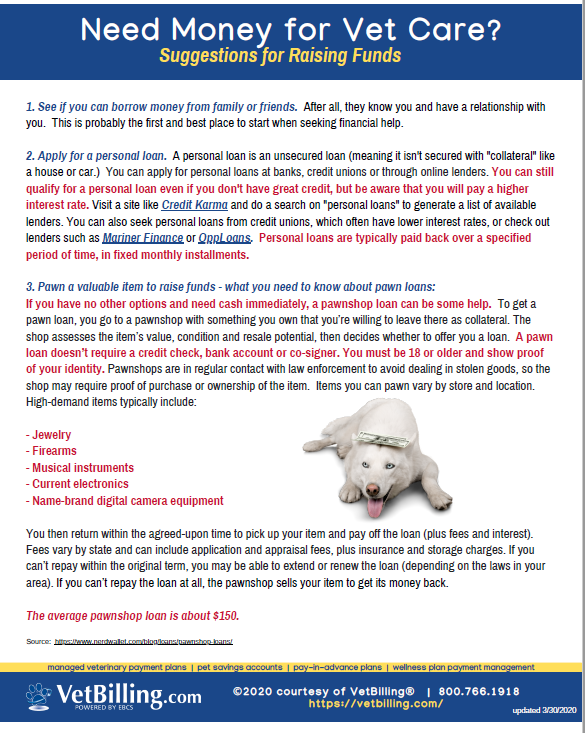Unexpected veterinary expenses can quickly become a major financial burden, leaving pet owners feeling overwhelmed and stressed. The cost of treating illnesses or injuries can be substantial, often exceeding what many individuals have readily available in their budgets. It’s crucial to remember that you are not alone in facing this challenge, and there are various options available to help manage these expenses and ensure your beloved pet receives the necessary care. This article will explore a range of solutions, from payment plans and financing options to charitable organizations and negotiation strategies, empowering you to prioritize your pet’s health while navigating financial constraints.
This article will delve into the different avenues available when facing what happens if you can’t pay a vet bill. We’ll discuss veterinary payment plans, explore various pet care financing options, highlight charitable organizations that offer financial assistance, and provide tips on negotiating with veterinarians to find more affordable solutions. By the end of this guide, you’ll have a comprehensive understanding of your rights and resources when dealing with unexpected veterinary costs.
Can’t Afford Vet Bills?
The emotional toll of a sick or injured pet is immense, compounded by the financial strain that often accompanies veterinary care. It’s important to remember that prioritizing your pet’s health should not come at the expense of your own financial well-being. If you find yourself struggling to afford a vet bill, don’t hesitate to reach out for help and explore the available options.
Open communication with your veterinarian is essential. Explain your financial situation honestly and inquire about potential payment plans or discounts. Many veterinarians are understanding and willing to work with pet owners facing financial hardship. Remember, seeking veterinary care early can often prevent more serious (and costly) health issues down the line.
Veterinary Payment Plans

Many veterinary clinics offer in-house payment plans to help spread out the cost of treatment over time. These plans typically involve making monthly payments with a set interest rate or no interest at all.
Benefits of Payment Plans:
- Reduced Financial Stress: Breaking down large bills into smaller, manageable payments can significantly ease financial pressure.
- Accessibility to Care: Payment plans make veterinary care more accessible for pet owners who might otherwise delay treatment due to cost concerns.
- Improved Budgeting: By incorporating regular payments into your budget, you can better manage your finances and avoid unexpected expenses.
When discussing payment plans with your veterinarian, be sure to inquire about the terms, interest rates (if applicable), and any associated fees.
Pet Care Financing Options
For larger veterinary bills, pet care financing options may be a viable solution. These specialized loans are designed specifically for covering pet-related expenses, offering flexible repayment terms and competitive interest rates.
Popular Financing Companies:
- CareCredit: A widely accepted credit card for healthcare expenses, including veterinary care.
- Scratchpay: Offers financing options with no hidden fees or prepayment penalties.
- VetPay: Provides point-of-sale financing directly through participating veterinary clinics.
Before applying for pet care financing, carefully review the terms and conditions, including interest rates, repayment periods, and any potential fees.
Charitable Organizations for Pet Expenses

Several charitable organizations provide financial assistance to pet owners facing unexpected veterinary costs. These organizations often offer grants, loans, or direct payment to veterinary clinics on behalf of eligible applicants.
Notable Organizations:
- The RedRover Relief: Offers emergency financial assistance for pet owners in need.
- ASPCA Pet Health Insurance: Provides coverage for unexpected veterinary expenses and offers a variety of plans to suit different budgets.
- Best Friends Animal Society: Supports various animal welfare initiatives, including providing financial aid for pet medical care.
To determine your eligibility for assistance from these organizations, visit their websites or contact them directly for information about application requirements and funding criteria.
Negotiating Vet Bills
While it can feel uncomfortable, negotiating with your veterinarian about the cost of treatment is a valid option. By approaching the conversation respectfully and openly, you may be able to reach a mutually agreeable solution.
Tips for Negotiating:
- Be Honest: Explain your financial situation clearly and honestly to your veterinarian.
- Explore Payment Options: Inquire about potential discounts, payment plans, or alternative treatment options that might be more affordable.
- Seek a Second Opinion: If you’re unsure about the cost of treatment or feel pressured by the initial quote, consider seeking a second opinion from another veterinarian.
Remember, your veterinarian wants to ensure your pet receives the best possible care while also understanding the financial constraints faced by many pet owners.
Conclusion
Facing unexpected veterinary expenses can be daunting, but remember that you are not alone and there are resources available to help. By exploring payment plans, financing options, charitable organizations, and negotiation strategies, you can prioritize your pet’s health while managing your finances responsibly. Open communication with your veterinarian is crucial throughout this process. Remember, seeking early veterinary care and proactive financial planning can significantly reduce the stress and burden associated with unexpected vet bills.



